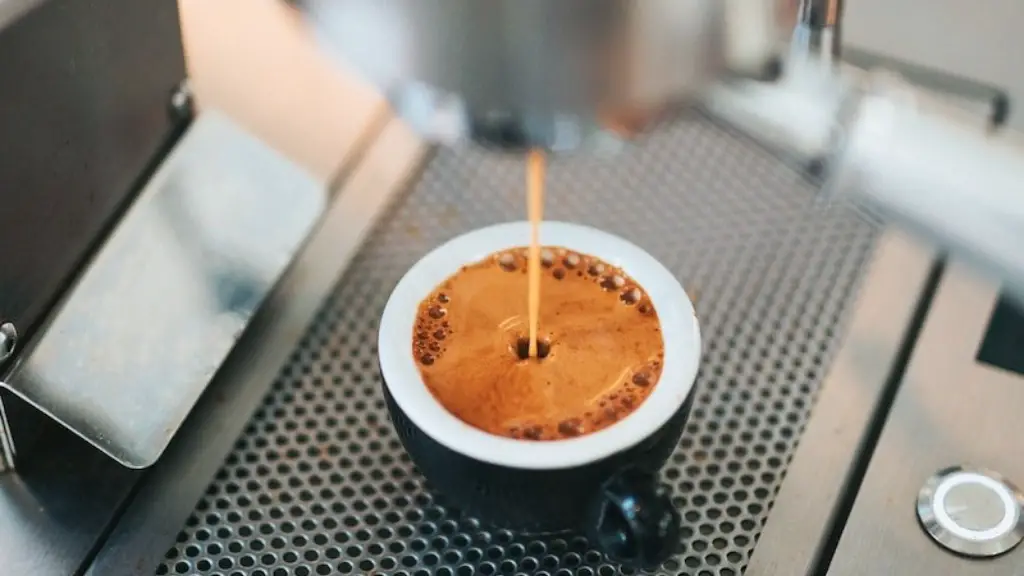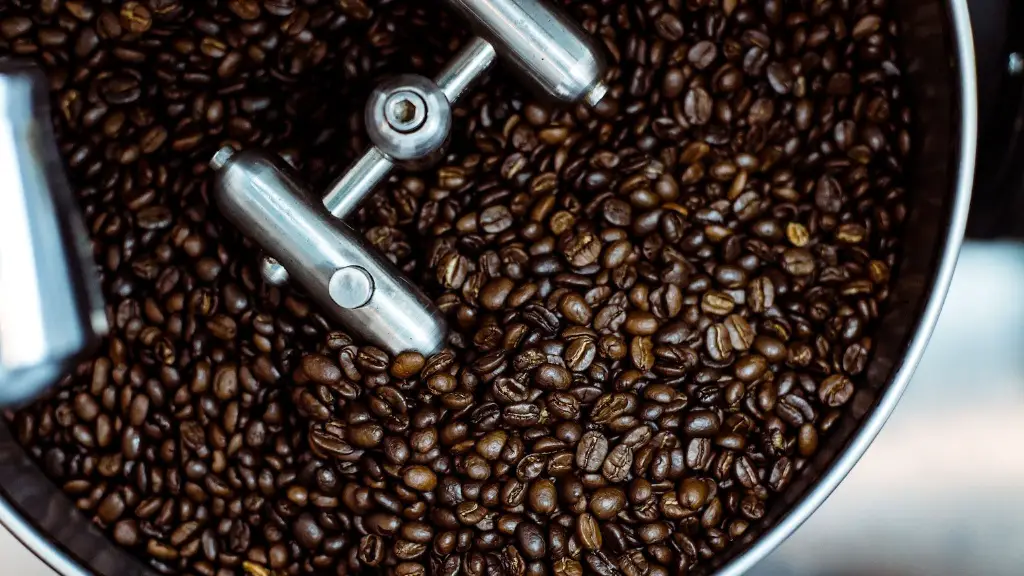Coffee is a beloved beverage for many adults and teenagers alike. But for those with braces, the question of safety can be unclear. It is important that those wearing braces be aware of how safe it is to drink coffee, and how often it is advisable to do so. In this article, we will dive deeper into this question and offer some suggestions on how to get the most out of your orthodontic experience while still enjoying your favourite cup of joe.
First, it is important to understand that coffee is acidic, and acid is known to weaken braces and other orthodontic appliances. The acidity of coffee is especially problematic for braces wearers because acids can break down the adhesive that holds the brackets and wires in place. This can lead to pain and discomfort, as well as even further damage to your brace or appliances. As such, it is important to be mindful of how often you consume coffee.
The next piece to consider is the impact of coffee stains on your braces and teeth. Along with the acid content in coffee, there are also staining agents that may cause discoloration of your braces and teeth. The discoloration can be unsightly and can even lead to decreased self-esteem. Therefore, wearing braces and drinking coffee—particularly on a regular basis—could potentially have a negative effect on both your physical and mental health if precautions are not taken.
When it comes to the amount of coffee that can be safely consumed with braces, there is no right answer. It really varies from individual to individual and the type of braces you are wearing. Orthodontists generally can advise on a case by case basis. It is important to take into account the number of cups of coffee you are drinking per day, as a few drinks a week is more feasible than a few drinks a day. Additionally, straws should be used when possible to reduce the risk of stains on the braces and teeth. This can also help to reduce the amount of acids getting onto the braces.
To reduce the negative impact of drinking coffee with braces, it is advisable to keep up a good oral care routine to make sure the acidity is counteracted. This means that you should brush your teeth twice a day and floss at least once a day. Additionally, it may be wise to consider cutting back on sugary and salty snacks, as these can also increase the likelihood of stains and acidity.
In conclusion, if you are considering drinking coffee while wearing braces, it is important to consider the risks. Be mindful of the acidic content of coffee and the possibility of staining. Speak to your orthodontist if you are concerned and take extra care to maintain a good oral care routine when consuming coffee.
How Can I Drink Coffee During Invisalign Treatment?
Invisalign treatment is very different from traditional braces, in the sense that it doesn’t require brackets, wires, or the same type of extensive care that normal braces do. When it comes to drinking coffee during Invisalign treatment, one must be aware of the risks associated with the beverage and how to reduce them.
In general, coffee is not advised as a regular beverage to drink while wearing Invisalign treatment, as the staining and acidity could have a negative impact on the results of the treatment, with teeth taking on a yellowish hue if they are exposed to coffee regularly. Additionally, coffee can cause discoloration of the aligners, due to their porosity.
When coffee is consumed in moderation, it isn’t likely that it will have an adverse effect on the treatment process. To maximize the benefits of Invisalign treatment, it is best to limit coffee consumption to no more than two cups a day. When drinking coffee, it is important to use a straw to ensure that the beverage does not come into contact with the teeth and aligners directly. Also, it is recommended that one should rinse the mouth with water afterwards to help neutralize the acidity; regular brushing and flossing should also be incorporated into the daily routine.
Invisalign wearers should also be aware of the coffee’s effect on their breath and oral health in general. Some coffee varieties, such as flavored or sweetened coffee and espresso, contain sugar which can linger in the mouth after consumption and increase the risk of cavities. The addition of milk, creamer, or sugar can also increase the staining of the teeth and aligners.
In summary, drinking coffee is safe with Invisalign treatment, but should be done in moderation and with caution. It is important to be aware of the risks associated with coffee consumption in order to ensure that the treatment produces the desired results.
Can Coffee Make Braces More Painful?
When wearing braces, it can be difficult to enjoy all the same foods and drinks that one was able to before. Coffee may be one of these drinks, as it can easily interact with the metal appliances in a negative way. Could it also potentially make braces more painful?
When wearing braces, acidic drinks such fruits juices or coffee should typically be avoided, as they can have lasting negative effects on the metal components. Coffee, particularly, should be avoided due to its acidity and potential to stain the teeth. However, some individuals may have weaker braces than others, or may choose to consume coffee regularly while wearing braces. Should this be the case, these individuals could potentially experience more pain or discomfort than usual due to the acidic content of the coffee.
The acidic content of coffee can cause the brackets and wires to break down, which can result in increase pain for the wearer. Additionally, the sticky residue of coffee can build up on the brackets and wires, which can also cause discomfort. The additional pressure from the residue on the teeth can further add to one’s discomfort.
In addition to the pain of acidic residue on the brackets and wires, coffee can also stain the teeth, making them appear dull and yellowish. The discoloration can be embarrassing for those who seek whiter and brighter teeth. Furthermore, if the acidity does not break down the braces, the staining of the teeth may not be reversible. As many orthodontic treatments are costly, it is important to be aware of the potential damage that acidic and staining drinks can bring.
In conclusion, coffee has the potential to make braces more painful due to its acidic content and sticky residue, which works to corrode the metal components of the appliance. Additionally, the staining of the teeth can be a permanent effect, making it important to take into account before drinking coffee while wearing braces.
How Can I Reduce Coffee Stains on My Teeth and Braces?
When wearing braces, it is important to be aware of which food and drinks can interfere with the orthodontic treatment. Coffee is one of these drinks, as it has the potential to cause staining of the teeth and braces. In this section, we will discuss ways to reduce the risk of coffee staining and discoloration.
The first, and perhaps most obvious, way to reduce the staining of coffee is to avoid the beverage altogether. This might be the safest, most effective way to ensure that the teeth and braces remain the same color. However, if coffee is enjoyed regularly, other steps must be taken.
Straws are a great way to reduce the potential for staining coffee, as they can help to keep the liquid away from the teeth and braces. This means that any excess staining liquid isn’t making direct contact with the metal, which can help to maintain the color and strength of the appliance. Additionally, it is important to drink plenty of water afterwards, as this helps to counter the acidic content of the coffee and reduce the potential staining effects.
Moreover, those wearing braces should take particular care to brush and floss their teeth after drinking coffee, as this helps to keep the teeth and braces clean and removes any remnants of the beverage. Regular brushing, flossing and rinsing also helps to keep the teeth looking and feeling healthy, which can help to promote a better smile and confidence.
In conclusion, it is important to be mindful of the potential of coffee to stain the teeth and braces, and to take caution when consuming it. However, by taking the necessary steps to reduce staining, such as drinking with a straw and taking extra care to brush, floss and rinse afterwards, the risk of staining and discoloration can be minimized, making the orthodontic experience as successful as possible.
Can Coffee Wear Down My Braces?
When it comes to the safety of coffee for those wearing braces, it is important to consider the effect that the beverage can have on the metal appliance itself. Can coffee wear down the braces, resulting in further damage and even additional pain?
The acidic content of coffee can actually contribute to the breakdown of the metal components of braces. Over time, the acid will corrode the baes and wires, leading to an increase in pain, discomfort and even further damage if the acid is not counteracted. Additionally, coffee can stick to the braces, which can cause the appliance to be weakened overtime.
Due to the risk of corrosion, it is important to be aware of the amount of coffee one is consuming while wearing braces. Just as with other acidic food and drinks, it is generally advised to limit coffee consumption to no more than two cups per day; if possible, a straw should be used to reduce the risk of the acid coming into contact with the braces directly.
Moreover, those with braces should be taking extra care to brush their teeth and floss after consuming coffee—and any other food or drinks—in order to ensure that any remnants of the beverage are removed and the acidity is counteracted. Additionally, regular check ups with the orthodontist can help to ensure that any signs of acid corrosion are caught and addressed in a timely manner.
In conclusion, it is important to recognize that coffee can wear down braces, leading to an increase in pain and further damage to the appliance. Therefore, it is important to be mindful of the amount of coffee being consumed, and to make sure that any remnants of the beverage are removed.





